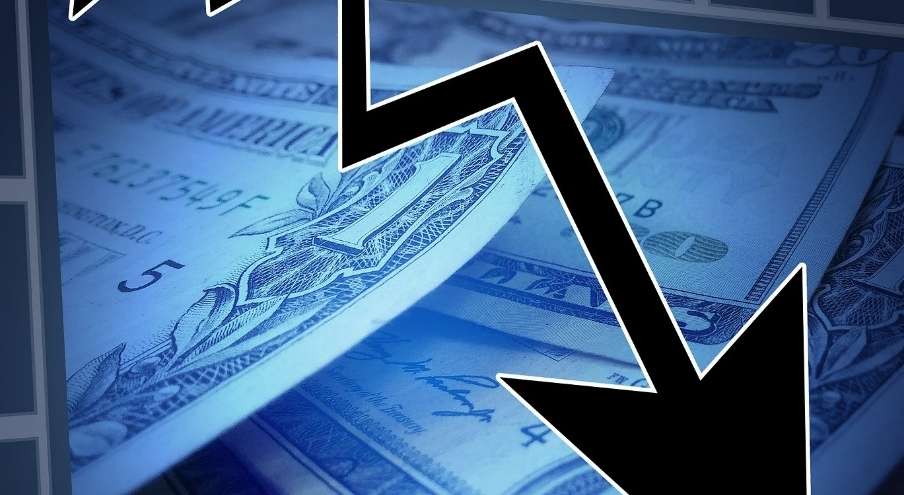ECB to Gradually Lower Interest Rates
Advertisements
In a recent interview on Wednesday, Christine Lagarde, the President of the European Central Bank (ECB), addressed a rising concern for Europe: the potential imposition of tariffs by the new President of the United States. With these threats looming, Lagarde emphasized the importance of vigilance while also outlining the ECB's strategy for monetary policy moving ahead. The market remains abuzz with anticipation as both European nations and the banking sector contemplate the ramifications of American economic policies.
The inauguration of the new U.S. President marked the beginning of a series of veiled yet explicit warnings directed towards the European Union (EU). Since the ceremony, the administration has issued statements suggesting possible tariffs on goods imported from Europe to the States. The rhetoric has been blunt, with the President labeling the EU as "very, very unfriendly" to the U.S. These comments signal an imminent shift that could impact transatlantic trade, stirring anxiety in European markets.
Amidst these tensions, Lagarde's remarks provide a dual perspective on the unfolding situation. She expressed relief on the choice made by the new administration, noting that no immediate blanket tariffs had been imposed on their first day in office. "This is a wise choice," she said, conveying a sense of optimism about the administration's caution. The implications of rapid and sweeping tariffs could be detrimental, particularly as they may not yield the desired economic outcomes intended to boost U.S. manufacturing by reducing imports from Europe.
Lagarde went on to scrutinize the practicality of such tariffs given the current state of the U.S. economy, which, she pointed out, is nearly operating at full capacity. Low unemployment rates and nearly exhausted production capabilities make it difficult to replace imports quickly. Furthermore, she cautioned that importers might struggle to maintain low-profit margins under increased tariffs, leading them to ultimately pass on the costs to consumers—a scenario that could spark inflationary pressures within the U.S. economy, which the government has been keen to control.

Nonetheless, the ECB's President implored European stakeholders to remain alert to the tariff threats. She predicted that any tariffs imposed would be "more selective and targeted," emphasizing the need for proactive measures to counteract any adverse effects on the European economy. With this in mind, Valdis Dombrovskis, the EU's Commissioner for Economic Affairs, underscored the Union's readiness to retaliate should the economic interests of its member states be jeopardized.
Amidst discussions on tariffs, Lagarde also reaffirmed the ECB's commitment to a gradual reduction in interest rates, maintaining a level of detachment from U.S. inflationary concerns. She regarded the potential for American inflation to impact Europe as a risk, but one that is not overly worrisome at this point. "We are not too concerned," she stated confidently, suggesting that the ECB's focus remains steadfast on its own policy objectives.
The green shoots of gradual interest rate decreases aim to stabilize a volatile economic scenario. Lagarde pointed out that the pace of rate cuts would hinge on forthcoming data, suggesting that progressive adjustments remain on the table. She declared, "The direction is clear," while leaving room for flexibility based on external indicators.
Speculation about what constitutes a "neutral interest rate" further dominates discussions. Lagarde indicated that the ECB defines this target rate within a range of 1.75% to 2.25%. This target is crucial for ensuring long-term economic stability without exacerbating inflationary pressures, especially during a period of fluctuating economic conditions. It reflects the Bank's latest recalibrations based on current economic assessments and policy outlooks.
During 2022, the ECB made significant moves by cutting interest rates four times to a key rate of 3%. Market predictions speculate that by September 2025, this rate could fall to 2%. Such a gradualist approach also creates a buffer against abrupt swings in monetary policy, allowing the economy breathing room for adjustment.
Lagarde elaborated further on crucial economic indicators, outlining the ECB's intention to monitor various "lagging" factors closely—specifically, services, energy, wages, and insurance. This scrutiny is pivotal as service prices play a vital role in the overall inflation composition within Europe. Any shifts in these prices can escalate or ease inflationary trends across the continent. Moreover, energy price fluctuations are often linked with international geopolitical conditions and global supply-demand dynamics—factors not easily controlled at the national level.
Wage levels arise from the complex interplay between labor supply and demand, tied closely to economic growth rates. In addition, insurance cost variations signal financial market health and risk management efficacy. Through the ongoing assessment of these critical components, the ECB aims to maintain a steady hand on the monetary policy lever, ensuring the economy’s stability while navigating the turbulent waters of international relations and domestic policies.
In conclusion, the prospect of new tariffs and the reactions from the ECB encapsulate the complexities of lingering global economic interdependencies. As both sides of the Atlantic seek pathways through treacherous economic currents, Europe finds itself at a critical juncture. While there are concerns over U.S. tariff policy and inflationary pressures, Europe's courses of action will rely heavily on the ECB's collaborative efforts to sustain growth and stability in an evolving economic landscape.
Leave a Reply
Your email address will not be published. Required fields are marked *